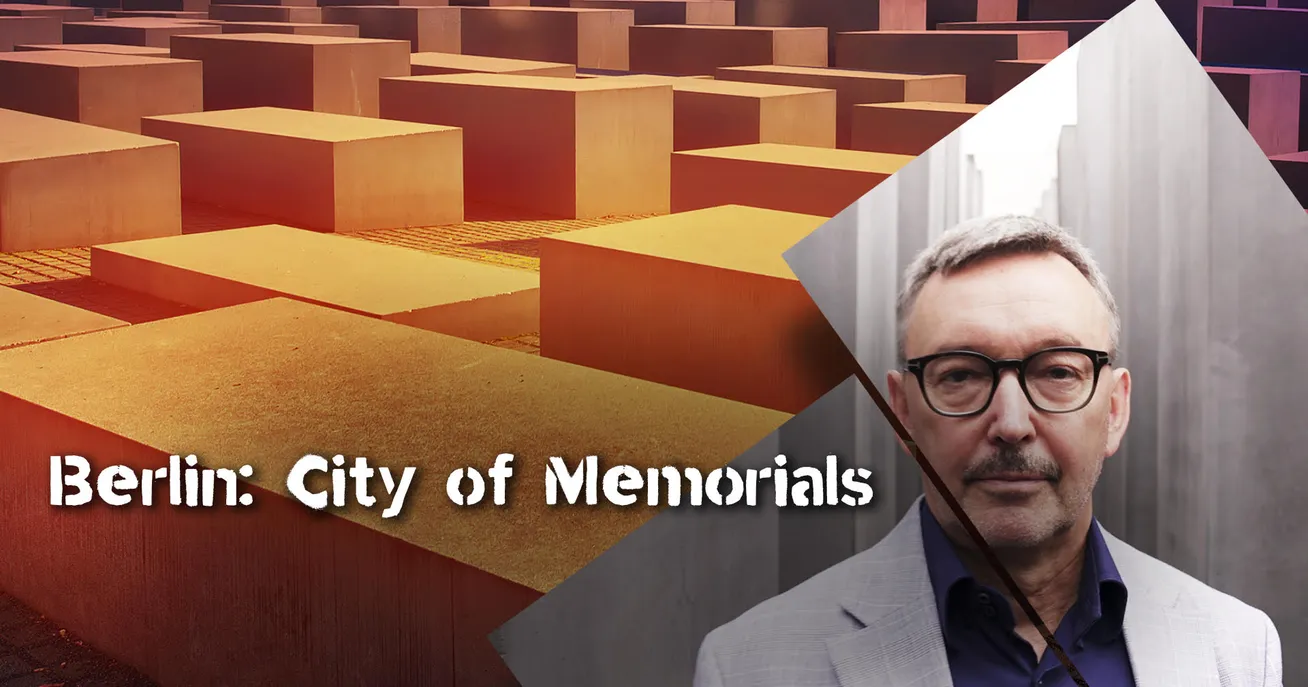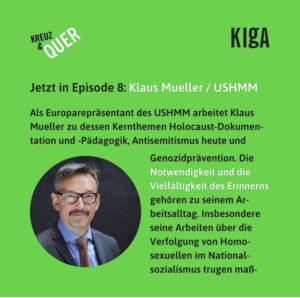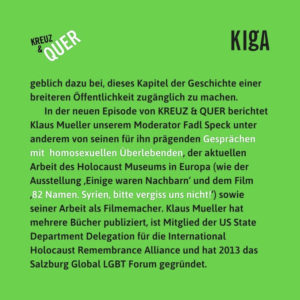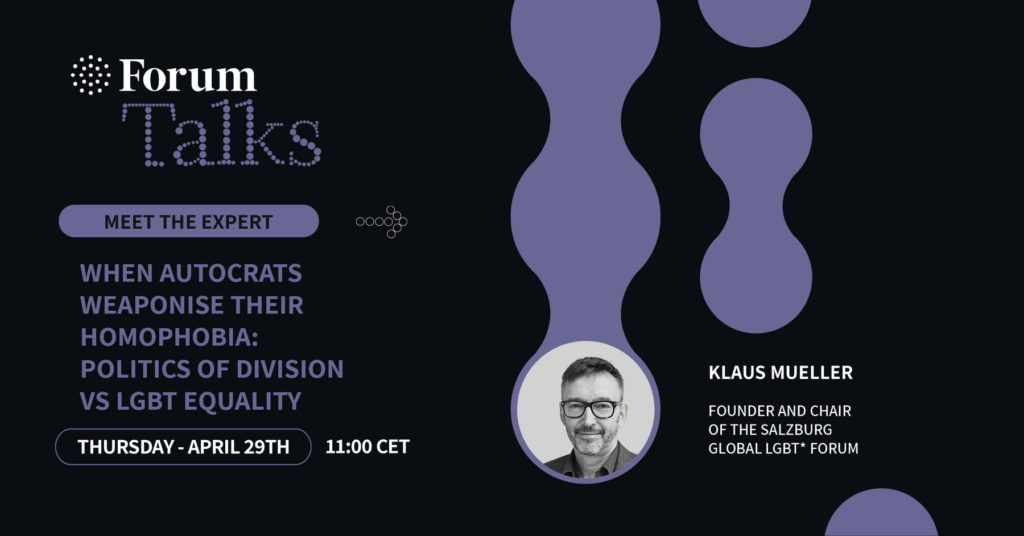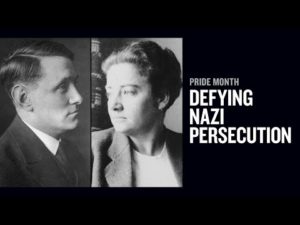SEE INTERVIEWS WITH CURATORS ON EXHIBITION ANNE FRANK THE WRITER: AN UNFINISHED STORY, 2003
The writings that were preserved from Anne Frank’s life can be held in one hand. Yet, their reach throughout the world has been immeasurable. In these short videos from 2010, Dr. Klaus Mueller, co-curator of the Holocaust Museum’s 2003 exhibit, “Anne Frank, the Writer“, and its Representative for Europe, comments on how literary critics have tended to dismiss the quality of Anne’s writings, despite the considerable impact they’ve had on legions of people.
INTERVIEWS USHMM FACEBOOK PAGE: PART 1 PART 2 PART 3
For the 2003 exhibition Anne Frank, the Writer: An Unfinished Story, the Holocaust Museum – thanks to a generous loan from the Netherlands – was able to display the original notebooks and diaries of Anne Frank for the first time in one place. Anne’s writings had never before been shown outside the Netherlands. Now, her complete writings are being transferred from the Government of the Netherlands to the Anne Frank House, where they will be on display beginning April 28, 2010. Recently we filmed some short clips of Dr. Klaus Mueller, the Museum’s Representative for Europe and co-curator of the 2003 exhibition to share his thoughts about Anne’s writing, which we will share throughout this week. In this first clip, Dr. Mueller reflects that while many people lament the writer that Anne could have been had she survived the Holocaust, in so doing they overlook what she did accomplish.
NOTE CO-CURATOR KLAUS MUELLER*
A child’s voice. A brave little flower. The diary as an objet trouvé?
Anne’s writings, while praised as astonishing, rarely have been mentioned without the filter of her age. Anne began her diary on June 12, 1942, her 13th birthday. Her last entry was on August 1, 1944, nearly two months after her 15th birthday. Despite the book’s overwhelming success, its author was belittled as a child and extensive literary research of her work was lacking for a long time, with few exceptions.
The exhibition on ‘Anne Frank The Writer: An unfinished story’ that I developed in 2003 for the United States Holocaust Memorial Museum together with its director Sara Bloomfield, departed from this long-held image. In my personal view, the focus on Anne as a young girl deprived her of her conscious authorship and claimed the text’s natural voice (that was so carefully crafted) as a mere outburst. Authorship in my view is not a compensation for a life she never had. Authorship is what she earned.
The exhibition was designed as a series of emotional spaces, an intimate and emotional journey. Its goal was to enable visitors to physically experience the original writings and to emphasize the writer Anne Frank through a material display of ‘her pen-children’. For the first time, the exhibition brought together most of Anne’s original writings in one space. Some of the items had never before been on public display outside the Anne Frank House in Amsterdam, or at all.
The exhibition showed some of the edited pages, her third diary notebook, her photo album, the Book of Nice Sentences and the Book of Stories. In order to accentuate their authenticity, only original artifacts were put on display. All photos were copies and presented as such. The Facsimile of Diary 1 was shown closed despite the visual attractiveness of the artifact’s inside. The texts guiding through the exhibition with few exceptions were selected from Anne’s diary and her other writings.
* All opinions expressed on this site are those of Klaus Mueller and do not represent the opinions of the United States Holocaust Memorial Council or United States Holocaust Memorial Museum.
SELECTED REVIEWS
“Ms. Bloomfield and her co-curator, Klaus Müller, are presenting Frank in a way the public is not accustomed to seeing her — not merely as a victim who kept a vivid record while hidden in an Amsterdam attic, but as a young woman who was determined to train herself as a professional writer and who carefully edited her diaries for publication. /…/ “Anne used the format of the autobiography with invention and then rewrote and rewrote, six pages of her diary every day, while she was also reading, studying and creating new stories,” Mr. Müller said. “Authorship is not a compensation for a life she never had. Authorship is what she earned.”
In: MUSEUM GIVES ANNE FRANK HER SPACE. by Elizabeth Becker, New York Times, June 12, 2003
“It is, intentionally, not a tribute to her life story, but rather to her writerly life. The Anne we see is both extraordinarily empathetic, as readers of her diary know, but also focused and ambitious — preparing her diary for publication, writing of author’s rights and potential magazine submissions.”
In: ANNE FRANK: TORN PAGES FROM A WRITER’S LIFE. By Jennifer Frey, Washington Post, June 11, 2003
“Anne Frank, the writer An unfinished story verdedigt één stelling: Anne Frank was meer dan een joods meisje dat op haar dertiende verjaardag van haar vader een roodgeblokt dagboekje kreeg en dat bijhield tot haar vijftiende. Zij was meer dan een veelbelovend schrijfster, zij wás schrijfster. Het museum doet die propositie zonder een spoor van sentimentaliteit of geoefend medelijden. Originele handschriften die niet eerder samen te zien waren, zijn bijeengebracht.”
In: ANNE FRANK, SCHRIJFSTER. By Marc Chavannes, NRC Handelsblad, Jun 27, 2003
